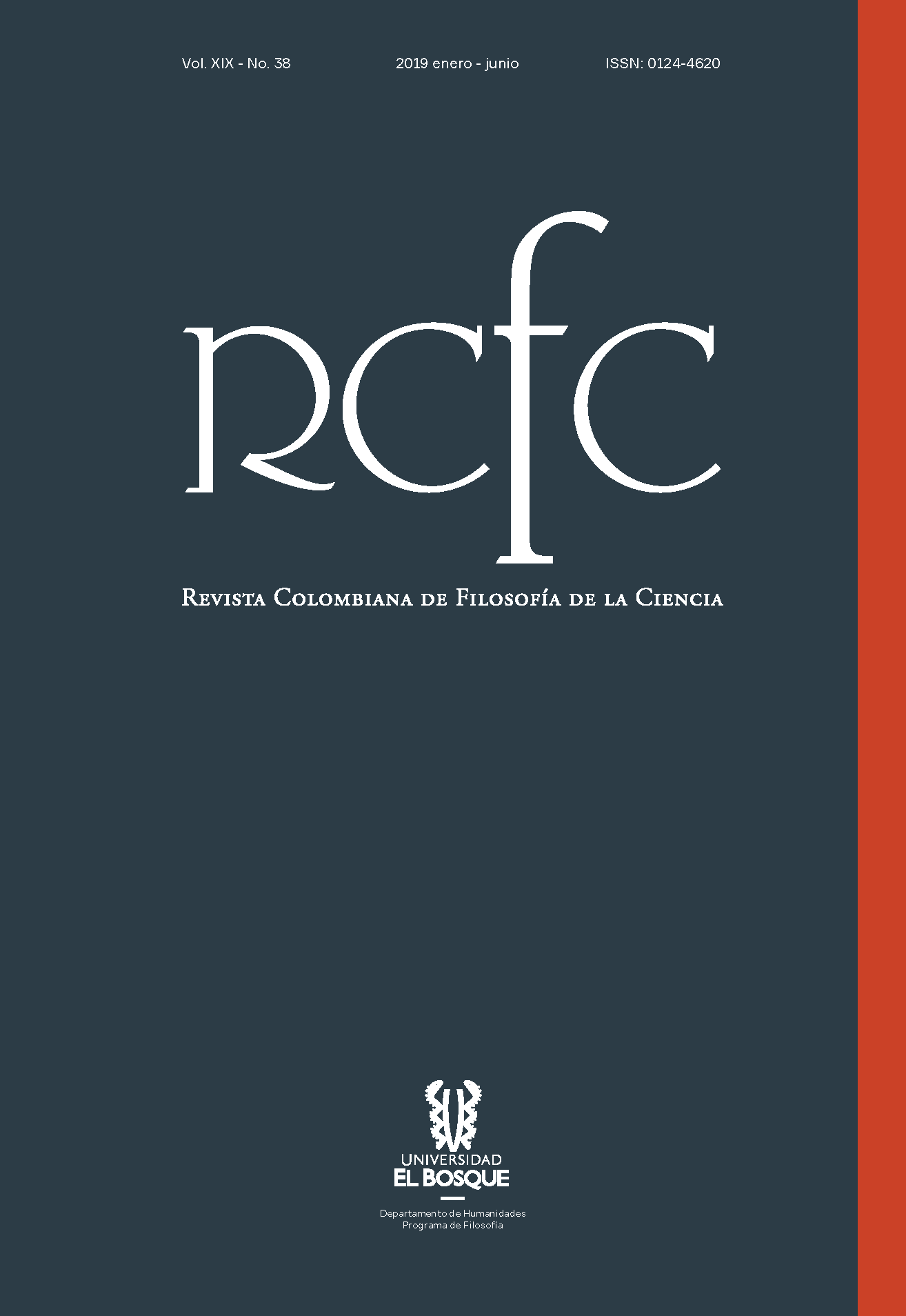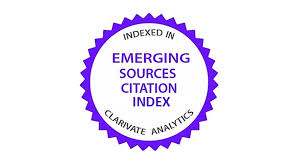¿Eres un realista selectivo dialeteísta y no te has dado cuenta?
DOI:
https://doi.org/10.18270/rcfc.v19i38.2411Palabras clave:
Realismo Selectivo, contradicción, dialeteia, Meta-Inducción PesimistaResumen
El realismo selectivo es el ‘tipo’ de realismo científico más común. Este realismo agrupa diversas perspectivas sobre la ciencia, las teorías científicas y las teorías de la verdad, por lo que ha resultado muy difícil definirlo con precisión. Sin embargo, hay tres elementos que, supuestamente, son suficientes para caracterizar esta posición: una motivación del Argumento de No Milagros, una motivación de la Meta Inducción Pesimista y el carácter selectivo. Aquí sostengo que la esta caracterización no es lo suficientemente robusta para señalar todos los elementos que los realistas selectivos de hecho comparten. En particular, sostengo que tal caracterización impide que los realistas selectivos prohíban la posibilidad de que las contradicciones estén conectadas con la verdad (dialeteias), incluso si éstas son no deseables.
Descargas
Referencias bibliográficas
Biedenharn, Lawrence. “The ‘Sommerfeld Puzzle’ Revisited and Resolved”. Foundations of Physics 13 (1983): 13–34.
Brown, Bryson. “How To Be Realistic about Inconsistency in Science”. Studies in History and Philosophy of Science 21.2 (1990): 281-294.
Brown Laurie, Abraham Pais y Brian Pippard. Twentieth Century Physics. New York, NY: American Institute of Physics Press, 1995.
Chakravartty, Anjan. “Scientific Realism”. The Stanford Encyclopedia of Philosophy (Summer 2017 Edition), 2017a.
_______. “Reflections on New Thinking about Scientific Realism”. Synthese 194.9 (2017b): 3379-3392.
_______. Scientific Ontology: Integrating Naturalized Metaphysics and Voluntarist Epistemology. Oxford University Press, 2017c.
Davey, Kevin. “Can Good Science be Logically Inconsistent?”. Special Issue: Is Science Inconsistent?. Synthese 191.13 (2014): 3009-3026.
Estrada-González, Luis. “On the Possibility of Realist Dialetheism” SATS 15.2 (2014):197-217.
Flores-Gallardo, Adrián E. “Realismo y negación. Una defensa metateórica y pluralista del Principio de No-Contradicción”. Tesis de maestría. UNAM, 2018.
Hempel, Carl. Selected Philosophical Essays. Ed. R. Jeffrey. Nueva York: Cambridge University Press, 2000.
Heisenberg, Werner. “Ausstrahlung von Sommerfelds Werk”. der Gegenwart’ Physikalische Blätter 24 (1968): 530–537.
Lakatos, Imre. “Falsification and the Methodology of Scientific Research Programmes”. Criticism and the Growth of Knowledge. Eds. I. Lakatos y A. Musgrave. Cambridge University Press, 1970. 91-195.
Laudan, Larry. Progress and its Problems: Towards a Theory of Scientific Growth. University of California Press, 1977.
______. “A Confutation of Convergent Realism”. Philosophy of Science 48.1 (1981): 19-49.
Lyons, Timothy D. “Scientific realism and the stratagema de divide et impera”. British Journal for the Philosophy of Science 57.3 (2006): 537-560.
Meheus, Joke. “How to Reason Sensibly yet Naturally from Inconsistencies”. Inconsistency in Science (2002): 151-164.
Pincock, Christopher. “How to Avoid Inconsistent Idealizations.” Synthese 191.13 (2014): 2957–2972.
Priest, Graham. “Inconsistency in the Empirical Sciences”. Inconsistency in Science, Dordrecht: Kluwer Academic Publishers (2002): 119-128.
Psillos, Statis. Scientific Realism: How Science Tracks Truth. London: Routledge, 1999.
Putnam, Hilary. Mathematics, Matter and Method, Cambridge: Cambridge University Press, 1975.
Saatsi, Juha. “Inconsistency and Scientific Realism”. Special Issue: Is Science Inconsistent?. Synthese 191.13 (2014): 2941- 2955.
______. “Replacing recipe realism”. Synthese 194.9 (2017): 3233-3244.
Smith, Joel. “Inconsistency and Scientific Reasoning”. Studies in History and Philosophy of Science 19.4 (1988): 429-445.
Trizio, Emilio. “Scientific Realism and the Contingency of the History of Science”. Science as It Could Have Been: Discussing the Contingency/Inevitability Problem. University of Pittsburg Press, 2015. 129-150.
Vickers, Peter. Understanding Inconsistent Science. Oxford University Press, 2013.
_____. Contemporary Scientific Realism and the 1811 Gill Slit Prediction 2015. <http://www.thebsps.org/2015/06/srpetervickers/>.
______. “Understanding the Selective Realist Defence Against the PMI”. Synthese 194.9 (2016): 3221-3232. <https://doi.org/10.1007/s11229-016-1082-4>.
______. “Disarming the Ultimate Historical Challenge to Scientific Realism”. The British Journal for the Philosophy of Science axy035 (2018) <https://doi.org/10.1093/bjps/axy035>.
Vickers Peter y Juha Saatsi “Miraculous Success?Inconsistency and Untruth in Kirchhoff’s Diffraction Theory”. British Journal of Philosophy of Science 62 (2011): 29–46.
Publicado
Cómo citar
Número
Sección
Licencia
Derechos de autor 2019 Revista Colombiana de Filosofía de la Ciencia

Esta obra está bajo una licencia internacional Creative Commons Atribución-NoComercial-SinDerivadas 4.0.











